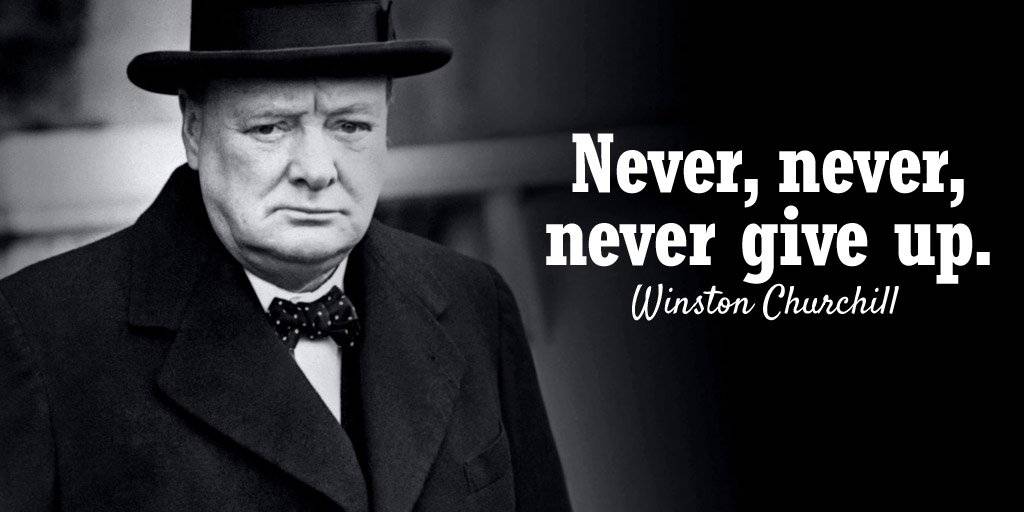The Power of Grit in Achieving Success
When it comes to achieving personal or professional success, there are many factors that contribute to an individual’s ability to accomplish their goals. One key characteristic that has been identified as a strong predictor of success is grit psychology.
This concept has gained significant attention in recent years, and for good reason. Grit psychology refers to an individual’s perseverance and passion for long-term goals.
It is often described as a combination of resilience, tenacity, and self-discipline. When someone possesses high levels of grit psychology, they are more likely to stick with difficult tasks over time and maintain their motivation despite setbacks or obstacles.
Defining Grit Psychology
At its core, grit psychology is about having the endurance and enthusiasm necessary to achieve lofty goals. It differs from other personality traits like intelligence, talent or charisma in that it emphasizes the importance of sustained effort over time rather than innate abilities.
Angela Duckworth, a psychologist at the University of Pennsylvania who has studied grit extensively describes it as “having stamina” and “sticking with your future day-in day-out”.
In her research on grit psychology she found that people with high levels of grit were able to maintain focus on long-term goals better than those who did not possess this trait. In short, grit is all about persistence towards long-term objectives while maintaining interest by developing passion towards those objectives through consistent effort over time.
The Components of Grit Psychology
Perseverance: The Key to Overcoming Challenges
When we think of the word perseverance, we often associate it with resilience and the ability to persist in the face of adversity. But at its core, perseverance is about maintaining focus on a long-term goal, despite obstacles or setbacks that may arise along the way.
Individuals who exhibit high levels of perseverance are able to push through challenges and maintain their motivation, even when progress seems slow or difficult.
This quality is essential for achieving success in any area of life, whether it be personal or professional. But what exactly does it mean to persevere?
To put it simply, perseverance means staying committed to a task or goal over an extended period of time. It requires discipline and dedication – the ability to keep moving forward even when things get tough.
Passion: Fueling Your Drive Towards Success
Passion is another crucial component of grit psychology. Defined as a strong interest or enthusiasm for a particular activity or goal, passion is what drives us forward and keeps us motivated when times get tough. Without passion, even the most dedicated individuals will struggle to maintain their focus and drive towards achieving their goals.
Whether it’s a hobby they enjoy in their free time or a career they’re passionate about pursuing, having that deep sense of purpose can make all the difference when facing challenges along the way. But passion isn’t just about feeling excited – it’s also about understanding why you’re doing what you’re doing.
Individuals with high levels of passion have a clear sense of purpose and direction in their lives. They know what they want to achieve and are willing to work hard towards making those goals a reality.
Grit Psychology: The Intersection of Perseverance and Passion
While perseverance and passion are distinct qualities on their own, together they form the foundation of grit psychology. When we have both perseverance and passion, we become unstoppable – able to weather any storm and overcome any obstacle in our path.
By cultivating both perseverance and passion, we can develop a mindset of resilience that will help us achieve success in all areas of life.
Whether it’s pursuing a new career opportunity or overcoming a personal challenge, having these qualities will give us the tools we need to succeed. So if you’re looking to enhance your own levels of grit psychology, start by focusing on building your perseverance and passion – the rest will follow.
The Benefits of Grit Psychology
Perseverance and Goal Achievement
Individuals with high levels of grit psychology are more likely to achieve their goals than those who lack perseverance and passion. Perseverance is the ability to stay focused on a task or goal despite challenges or setbacks. In other words, gritty individuals do not give up easily and are able to maintain their motivation even when faced with obstacles.
Research has shown that individuals with high levels of grit are more likely to achieve their long-term goals than those who lack grit. This is because gritty individuals are able to maintain their focus and motivation over extended periods, which allows them to persist through the ups and downs that inevitably occur during any long-term pursuit.
Resilience and Mental Toughness
Gritty individuals also tend to be more resilient and mentally tough than those who lack perseverance and passion. Resilience refers to the ability to bounce back from difficult experiences, while mental toughness refers to the ability to stay focused under pressure.
When faced with difficult situations or setbacks, gritty individuals are better equipped to recover quickly and continue pursuing their goals. Additionally, they tend to be better at managing stress, which can help prevent burnout and improve overall well-being.
Overall Well-Being
Developing grit psychology can lead to improvements in overall well-being. This is because having a strong sense of purpose and direction in life can help people feel more fulfilled, happy, and satisfied.
Gritty individuals also tend to have higher self-esteem than those who lack perseverance and passion. This is because they are able to achieve their goals more often, which gives them a sense of accomplishment that boosts their confidence.
Overall, developing a strong sense of grit psychology can have numerous benefits for personal growth, professional success, and overall well-being. By cultivating perseverance and passion, individuals can improve their ability to achieve their goals, bounce back from setbacks, and enjoy a more fulfilling life.
Developing Grit Psychology
Perseverance Tips
Perseverance is the ability to stick with a task or goal despite challenges or setbacks. While some individuals may have a natural inclination towards perseverance, it is a trait that can be developed and practiced over time.
One way to develop perseverance is by setting achievable goals. This means breaking down larger tasks into smaller, more manageable steps.
By achieving small goals along the way, individuals can build momentum and make progress towards their overall objective. Another way to develop perseverance is by seeking feedback.
Feedback can come in many forms, including from colleagues, mentors, friends, or family members. Receiving constructive feedback can help individuals identify areas of weakness and make necessary adjustments to improve their performance.
Additionally, feedback can provide motivation and validation for the hard work that goes into achieving long-term goals. Practicing self-reflection is another powerful tool for developing perseverance.
Taking time to reflect on one’s strengths and weaknesses can help individuals identify areas where they need to improve and set personal growth objectives accordingly. Additionally, self-reflection allows individuals to acknowledge their successes along the way, even when progress feels slow or challenging.
Cultivating Passion Advice
Passion is a strong interest or enthusiasm for a particular activity or goal that provides purpose and meaning in life. Cultivating passion requires exploration of new interests outside of one’s comfort zone. Trying new things not only helps individuals discover what they are passionate about but also helps them develop a growth mindset where challenges are viewed as opportunities for learning rather than obstacles.
Finding purpose in activities is also important when cultivating passion because it provides direction and connection with values and beliefs that motivate an individual’s behavior toward success in life goals with dedication which leads them through every thick and thin of life softly.
Seeking out role models who embody similar passions can also be advantageous when cultivating passion.
Identifying individuals who have achieved success in areas of interest can provide motivation and inspiration for individuals to pursue their own passions with dedication and hard work. Developing grit psychology requires both perseverance and passion.
By setting achievable goals, seeking feedback, and practicing self-reflection, individuals can develop perseverance over time. Additionally, by exploring new interests, finding purpose in activities, and seeking out role models who embody similar passions, individuals can cultivate their passion for a particular activity or goal.
The Role of Grit Psychology in Professional Success
Perseverance and Commitment: The Key to Professional Success
Grit psychology has gained significant attention in the world of work due to its correlation with professional success. Employers value employees with high levels of grit due to their ability to persevere through challenges and remain committed to achieving goals.
Individuals with high levels of perseverance are more likely to overcome obstacles, such as difficult projects or tight deadlines, and remain focused on their objectives.
They are also more likely to accept constructive feedback and learn from their experiences, which can help them grow professionally. Furthermore, individuals with high levels of commitment tend to be more productive and efficient in their work.
They have a clear sense of purpose and direction, which allows them to prioritize their tasks effectively. This leads to increased job satisfaction and career growth opportunities as they demonstrate consistent performance over time.
Examples of Successful Individuals Who Have Demonstrated High Levels of Grit Psychology
There are countless examples of successful individuals who have demonstrated high levels of grit psychology in their careers. One such example is J.K Rowling, the author behind the Harry Potter series.
Rowling faced numerous rejections before finally landing a publishing deal for her first book. Despite this setback, she remained committed to her vision and persevered through countless challenges throughout the writing process.
Another example is Elon Musk, the CEO of Tesla and SpaceX. Musk has been known for taking major risks in his career that often involve overcoming significant technical challenges.
However, his unwavering commitment towards his visions has helped him achieve great success despite facing many obstacles along the way. These examples demonstrate how grit psychology plays an integral role in professional success by enabling individuals to persevere through challenges while remaining committed towards achieving their goals.
Grit psychology plays a crucial role in professional success by enabling individuals to persevere through challenges and remain committed towards achieving their goals. Employers value employees with high levels of grit, as they tend to be more productive, efficient, and consistent in their work.
Successful individuals like J.K Rowling and Elon Musk demonstrate how grit psychology can help individuals overcome significant obstacles to achieve great success in their careers. By cultivating perseverance and commitment, individuals can develop the necessary grit psychology required to excel in their professional lives.
Encourage readers to develop their own levels of grit psychology by persevering through challenges and pursuing their passions
Developing a mindset of grit psychology can be challenging but will lead to long-term rewards. It is crucial to start small by setting achievable goals that align with one’s interests.
Seeking feedback from others can also help individuals refine their skills and build on their strengths while identifying areas that need improvement. Perseverance amidst setbacks is essential when developing this mindset since it helps individuals overcome obstacles without losing sight of their end goal.
Cultivating a passion for activities that give meaning to one’s life is essential in building long-term success based on intrinsic motivation. Engaging in activities that are aligned with values improves overall satisfaction, increases self-esteem, provides a sense of achievement, and develops healthy coping mechanisms when faced with challenges.
Developing grit psychology takes time; however, it is worth it since it provides an individual with numerous benefits that translate into professional success and overall well-being.
With consistent effort towards improving one’s perseverance skills while seeking out new interests or hobbies in alignment with personal values will enable anyone to develop high levels of grit successfully.
20 quotes from others/famous people on PerseveranceChatGPT
20 quotes on perseverance:
- “Perseverance is not a long race; it is many short races one after the other.” – Walter Elliot
- “The difference between a successful person and others is not a lack of strength, not a lack of knowledge, but rather a lack in will.” – Vince Lombardi
- “It does not matter how slowly you go as long as you do not stop.” – Confucius
- “Perseverance is failing 19 times and succeeding the 20th.” – Julie Andrews
- “The will to persevere is often the difference between failure and success.” – David Sarnoff
- “Through perseverance many people win success out of what seemed destined to be certain failure.” – Benjamin Disraeli
- “Great works are performed not by strength but by perseverance.” – Samuel Johnson
- “Success is no accident. It is hard work, perseverance, learning, studying, sacrifice and most of all, love of what you are doing or learning to do.” – Pele
- “Perseverance is the hard work you do after you get tired of doing the hard work you already did.” – Newt Gingrich
- “The road to success is dotted with many tempting parking spaces.” – Will Rogers
- “Perseverance, secret of all triumphs.” – Victor Hugo
- “Success is the child of drudgery and perseverance. It cannot be coaxed or bribed; pay the price and it is yours.” – Orison Swett Marden
- “Perseverance is a great element of success. If you only knock long enough and loud enough at the gate, you are sure to wake up somebody.” – Henry Wadsworth Longfellow
- “With ordinary talent and extraordinary perseverance, all things are attainable.” – Thomas Fowell Buxton
- “Perseverance is the foundation of all actions.” – Lao Tzu
- “Perseverance is an active principle, and cannot continue to operate but under the influence of desire.” – William Godwin
- “Don’t be discouraged. It’s often the last key in the bunch that opens the lock.” – Unknown
- “The difference between perseverance and obstinacy is that one comes from a strong will, and the other from a strong won’t.” – Henry Ward Beecher
- “In the realm of ideas everything depends on enthusiasm… in the real world all rests on perseverance.” – Johann Wolfgang von Goethe
- “The only guarantee for failure is to stop trying.” – John C. Maxwell
These quotes emphasize the importance of perseverance in achieving success and overcoming challenges.
20 affirmations that can help inspire perseverance:
- “I am resilient, strong, and capable of overcoming any challenges.”
- “Every setback is a setup for a comeback.”
- “I am committed to my goals and my vision.”
- “I trust in my ability to endure and persist.”
- “I am patient and persistent in my pursuit of success.”
- “I am becoming stronger with each challenge I face.”
- “Obstacles are opportunities for me to grow and learn.”
- “My potential to succeed is limitless.”
- “I embrace challenges as they are stepping stones to my success.”
- “I have the power to overcome any obstacle in my way.”
- “I am focused on my goals and feel passionate about my work.”
- “I am determined and will never give up.”
- “I am constantly developing my skills and growing as a person.”
- “I am not afraid to keep going and I believe in myself.”
- “I have the will and desire to reach unlimited heights.”
- “I am motivated, disciplined, and ready to conquer any hurdle.”
- “Every day I am getting closer to achieving my goals.”
- “I am confident in my ability to change my life for the better.”
- “I persevere and persist until I achieve my goals.”
- “I have everything I need within me to overcome any challenge.”
Remember, affirmations work best when they are repeated regularly and believed sincerely. Let them inspire and motivate you to persist and persevere.




























































